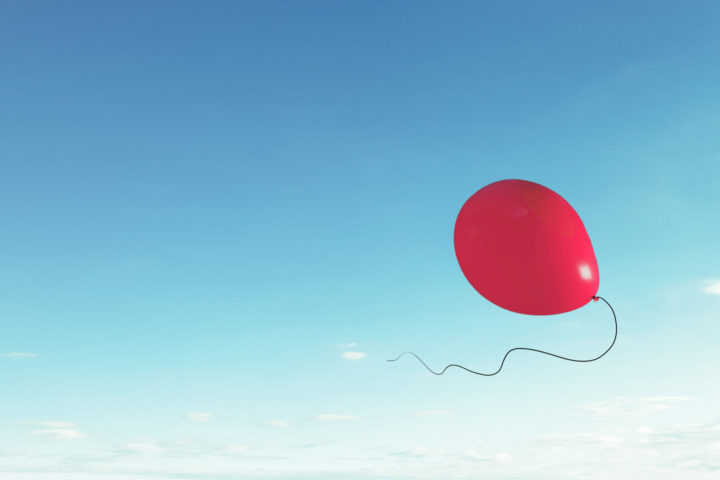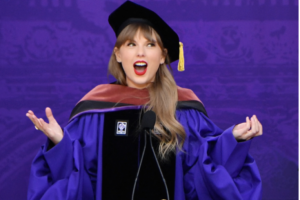The Queen of the Skies made her last journey earlier this summer. Qantas flight QF6160 received a water salute as it taxied from the gate in Sydney, the jumbo 747 bound for Los Angeles and eventually an aircraft boneyard in the Mohave Desert. It’s the end of an era, not only for an iconic aircraft but for many other institutions as well. From some of our big retailers, like Pier One Imports, Lord & Taylor, and Brooks Brothers (a favorite of mine from the days when I was regularly suited), to our small, independent local favorites, the speed at which once solid businesses are disappearing has quickened, especially in recent months. We are reminded that they are all, after all, impermanent.
For me, each 2020 restaurant closure, concert cancellation, or scrapped vacation, hits me harder than previous disappointments. Jeff Warren, co-author of Meditation for Fidgety Skeptics, compares this current moment in our history—with all its fear, political and social strife, and daily confusion—to living on a ship at sea. Warren suggests that everything gets amplified at sea: our ruminations, our moods, and our behaviors. That may sound like a lot of noise, but if we can turn down the volume a tad, the coach in me asks this question.
What is available for us now?
For college and university faculty, staff, and administrators entering arguably the most unpredictable semester in history, there can be an ignited imagination here now that would not have surfaced if the fall 2020 term launched seamlessly as planned, before Covid-19 disrupted just about everything. So much on our campuses is being scaled back, cancelled, or worse yet eliminated. Athletics, residence life, orientation programs, study abroad, graduation, in-class learning, dining hall meals, on-campus lectures and events; the list of traditions none of us dreamed would be paused has gotten longer as fall approached.
The Audacity of Doing Less
Consultant and Zen teacher, Marc Lesser, author of the book entitled Less: Accomplishing More by Doing Less, takes a more optimistic look at impermanence, writing that “appreciating impermanence clarifies priorities, and it helps us identify the frenetic, shallow, or ineffective activities we’ve been distracted by.” Lesser dives deep into our desire for more—more activity, more things, and the resulting more exhaustion. And he makes the argument that perhaps we might shift our mindset to celebrating less, not more. During this surreal pause on our campuses, could we possibly celebrate less?
I’m not so sure. The trouble is, my college and university clients are often driven to do more, not less. They are good are their jobs, recognized for their impact, and are often riding ascending career trajectories. They are about more responsibility, more staff, more resources, and more permanence. So, me posing a question to a university client on a video chat, such as “What is available for you now?”, may prompt a look in their Zoom window of confusion, even annoyance. Honestly, this university leader has plans, and those plans involve growth! I can almost hear their response, “Doing less?” Seriously? Nope! That’s not how I roll.”
But could it be that one possibly optimal outcome of a post-pandemic college campus is a refined and more focused collection of academic and co-curricular offerings? An outcome where campus staff are less prone to be all things to all people? One that one day soon re-introduces paused programs, maintaining what was superb about them and sunsetting what needed to be let go? As the late actor and philosopher, Bruce Lee said, “It’s not the daily increase but the daily decrease. Hack away at the unessential.”
I asked a few university administrative leaders for their thoughts on impermanence and letting go of the unessential. Here is what I learned.
Fresher Classroom Experience
Marcy Bullock and I came of age together in university career services; we have known each other for 25 years. As Director of Professional Development at North Carolina State University, an institution she has served for over 29 years, Marcy has always been an innovator in crafting unique and engaging experiences for her students. Just a few weeks ago, Marcy completely restructured the courses she is teaching for 130 students. Masked-up and with a large plexiglass shield in front of her podium in an over-sized lecture hall, the video camera records Marcy as she delivers her lecture to a handful of students socially distanced in the classroom and the majority who are participating remotely. In order to make this new era of instruction engaging for her students, Marcy has eliminated traditional sage on stage teaching methodology and replaced it with a supplemental YouTube channel, meditation and yoga breaks, and a Peloton warm-up to get their hearts pumping. Her hope is that by letting go of all those assumptions regarding classroom learning and using this unplanned historic moment to reinvent, she will ignite the imagination and interest of her students in new ways.
If you are an instructor, how might you achieve your course objectives in new, bold ways that you never would have considered before our current global health crisis?
Creative Program Overhaul
Joel Gallegos is the Senior International Officer (SIO) at the University of North Carolina Charlotte, a campus he has served for 23 years. He and I worked together on a consulting project several years ago, and I learned a great deal from him about the phenomenal growth of study abroad for domestic students and academic opportunities for international students over the last three decades. Joel rose in his profession as our colleges and universities became increasingly global in their curriculum and reach.
International education was on a steady growth curve until January of this year when student programs in China started to be cancelled. “We were the canaries in the coal mine,” he shared on a recent call as he described early signals pointing to a looming pandemic. Programs in Italy were the next to be cancelled. By the end of the spring semester, Joel’s team, along with international educators on campuses throughout the country, safely repatriated thousands of students who were studying abroad in locations throughout the world.
Today, study abroad programs have been cancelled for the fall and possibly spring 2021 as well. Also, the academic future of international students on US campuses is unclear. Yet, Joel has turned his attention to what he calls “Restructure, Re-invigorate, and Re-new,” pointing to tremendous opportunity to advance virtual exchange programs in Globally Networked Learning (GLN), an approach to cultural student engagement that enables students, faculty, and non-academic researchers from different locations around the world to participate collectively in knowledge-making processes and concrete research projects.
If you are a senior administrator who has eliminated (even if temporarily) a primary service offering, what might you create or advance during this pause to impact your stakeholders in new ways?
Process Simplification
The leader of a large public university administrative team I coached through the early months of the pandemic discovered a number of clunky administrative processes in her portfolio that had never been examined until she and her direct reports went virtual. Although this wasn’t the exciting stuff that generates positive buzz in her division, it is important detail work that no one notices when it operates smoothly but creates significant disruption if it fails. Once the team got past the “But we’ve always done it this way,” they were able to eliminate unnecessary steps, streamline process, increase efficiency, and save time.
If you are an operational leader, what processes in your organization can be refined, streamlined, or eliminated?
Some of This May Feel Familiar
Back in 2009, I was a director of a high-volume student services office at UC San Diego. The global economic crisis was hitting public higher education especially hard. I found myself doing the unenviable work of cutting budgets, freezing hiring, furloughing staff, and eliminating student programs. Talk about feeling a sense of impermanence! Yet, as I look back on that time, I do so with a fondness of how my operation was able to run optimally during what seemed like as rather gloomy era. By doing less and focusing with precision on what truly defined our student service organization and the essential work we were meant to do, we were, in a sense, liberated. We replaced the staff drama of more abundant times with the self-compassion, gratitude, and pride of service that arises only when we have no choice but to let go.
NC State’s Marcy Bullock fast forwards that notion to today, sharing with me that maybe this era of impermanence will enable college staff to let down their guards, become more authentic, and “shed their shells.” Maybe this era will lesson our tendency to judge while bolstering our desire to trust. Maybe it will bring new vision to the campus table.
Maybe we will find whenever we get to the other side that there is an upside to impermanence.





